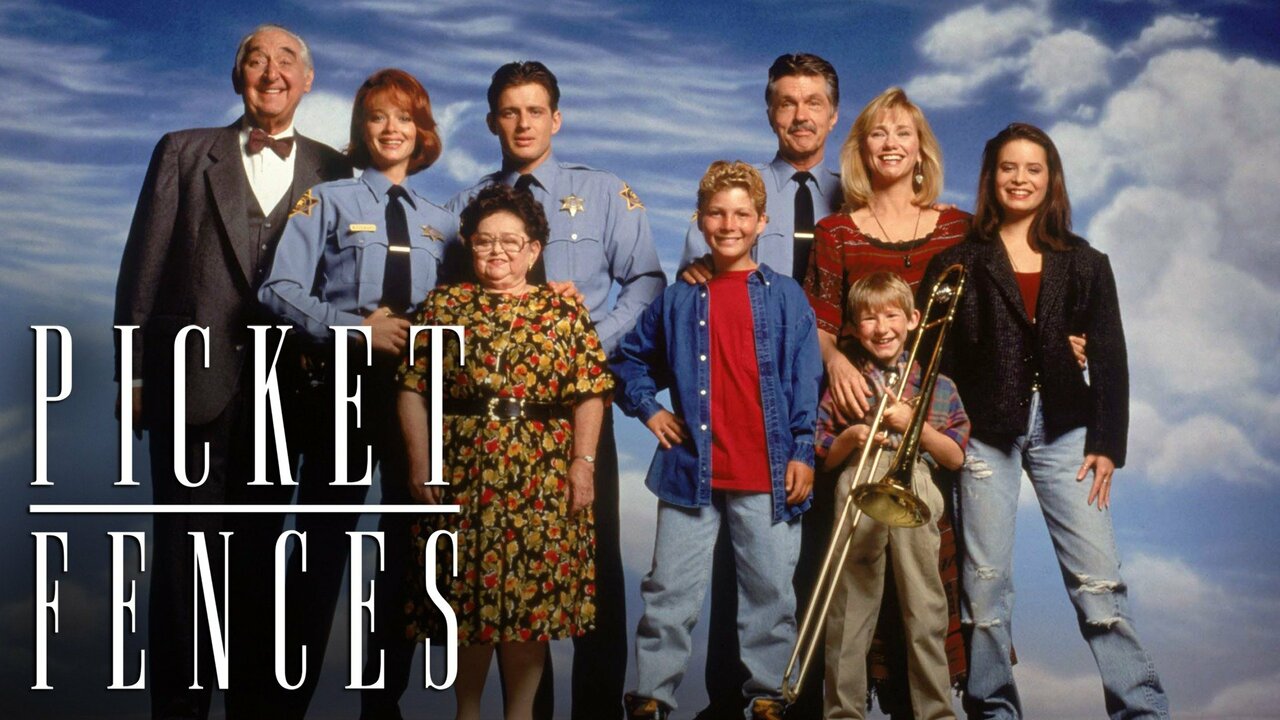Picket Fences

“Picket Fences”: Small Town, Big Questions
When Picket Fences aired in the early 1990s, television audiences were just beginning to see small-town dramas step beyond cozy idealism. But Picket Fences, created by David E. Kelley, didn’t just step out—it kicked down the door with a smile.
Set in the fictional town of Rome, Wisconsin, the series may have looked like a classic Americana postcard—with white picket fences, friendly neighbors, and familiar family values—but beneath that surface was a world that was anything but ordinary.
The Suburbia Illusion: Where Weird Meets Real
On its face, Rome is a typical small town. But this show quickly dismantles the illusion. Cloning, same-sex marriage, euthanasia, religious extremism, teenage sexuality, police ethics, and school politics were all fair game—often packed into a single episode. It was a place where absurdity and philosophical depth danced uncomfortably close, and the result was something uniquely provocative for its time.
Unlike many procedurals or family dramas of the era, Picket Fences asked real ethical questions and didn’t hand out easy answers. It thrived on moral ambiguity. A sheriff might uphold the law one moment, and question its very foundation the next. A judge might offer wisdom in one scene, then reveal personal hypocrisy in another.











